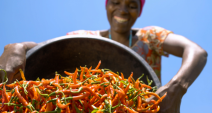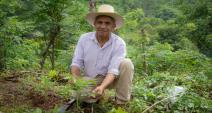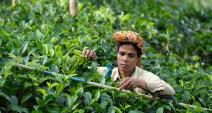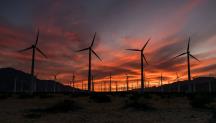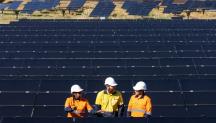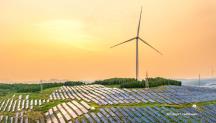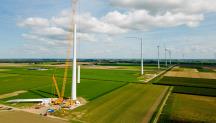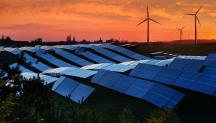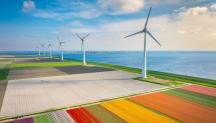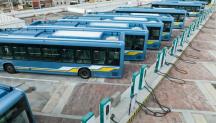Tripling renewable power capacity by 2030 plays a key role in rapidly and drastically reducing global greenhouse gas emissions to keep the world on a 1.5°C pathway. This global goal has been widely acknowledged by the world uniting behind the UAE Consensus at COP28 in Dubai.
Despite a record growth in renewables in 2023, the global target risks falling short. And deployment shows significant regional disparities with the Global South increasingly being left behind.
No shortcuts are available; global action must be focused and aligned around key priorities. We must overcome the structural barriers impeding progress. Key enablers for the energy transition include infrastructure modernisation and expansion; supportive policies; the development of institutional and human capacities; scaled-up financing; and strong international cooperation.
#3xRenewables for the planet and its people
Voices of Progress
The commitment to triple renewable power capacity is a promise of sustainable development and economic growth, a driver for empowerment and social equity, and a catalyst for energy security and independence. The 3xRenewables – for the planet and its people video series showcases how renewable energy solutions bring progress, prosperity, and growth to the communities in the Global South.
Rwanda: #3xRenewables for sustainable development and women empowerment
In Rwanda’s Eastern Province, a group of resilient women have turned their small farm into a symbol of hope. Using solar power to overcome tough conditions, they grow fruits and vegetables that feed their families and boost the local economy. This farm is a testament to their strength and the power of renewable energy, uplifting not just themselves, but their entire village, as they work towards a brighter, sustainable future.
Zimbabwe: #3xRenewables for access to clean water, improved health and education
A school in rural Zimbabwe transformed the community by installing a solar-powered water borehole. Over 1,000 children and their families now have access to clean water for drinking and everyday use. But the project impact goes beyond that – the community is now learning to grow organic mushrooms on a solar-powered farm, turning waste into food.
Honduras: #3xRenewables for climate resilience and energy access
In a remote village in Honduras, a decentralised, sustainable energy project combining solar power, biomass, and battery storage has provided continuous electricity—empowering the community, enhancing quality of life, providing refrigeration for food and medicines, and revitalising the local economy.
Sri Lanka: #3xRenewables for job creation and economic growth
In Sri Lanka's southern region, by the Sinharaja rainforest, an agricultural farm that harvests solar energy to power its activities and collects rainwater to irrigate its crops creates jobs for the community.
Sri Lanka: #3xRenewables for sustainable transport, clean air and lower energy costs
In Sri Lanka's capital city, Colombo, a quiet transformation is unfolding as electric tuk-tuks are transforming daily life, driving sustainable mobility and technological innovation by integrating solar-power charging stations.
Kenya: #3xRenewables for energy independence and food security
In a coastal fishing community in Kwale County, Kenya, solar power is providing reliable electricity for cold storage. This helps local fishermen preserve their catch, reduces dependence on a fluctuating grid, supports livelihoods through fairer prices, and secures a sustainable solar-powered future for the community.
Key Enablers of Energy Transition
Key Enabler to #3xRenewables – International Collaboration
The International Renewable Energy Agency (IRENA) identifies heightened international collaboration and finance as the enablers that significantly improve renewables deployment efforts in regions and countries that gain the least benefits from the energy transition.
Key Enabler to #3xRenewables – Finance
The International Renewable Energy Agency (IRENA) identifies increased financing and investment in renewables technology as the enablers that will significantly improve renewables deployment efforts in regions and countries that gain the least benefits from the energy transition.
Key Enabler to #3xRenewables – Skills and capacities
The International Renewable Energy Agency (IRENA) identifies addressing current gaps in skills and capacities needed for the energy transitions as the enabler that will significantly improve renewables deployment efforts in regions and countries, especially those that are yet to gain the benefits of the transitions.
Key Enabler to #3xRenewables – Policy & Regulations
The International Renewable Energy Agency (IRENA) identifies policy interventions for the energy transition as the enabler that will address structural barriers hindering the energy transitions.
Key Enabler to #3xRenewables – Infrastructure & System Operation
The International Renewable Energy Agency (IRENA) identifies lagging infrastructure development and inefficiencies in power grids as some of the barriers to accelerate energy transitions and to meet the tripling renewables capacity goal 2030.






